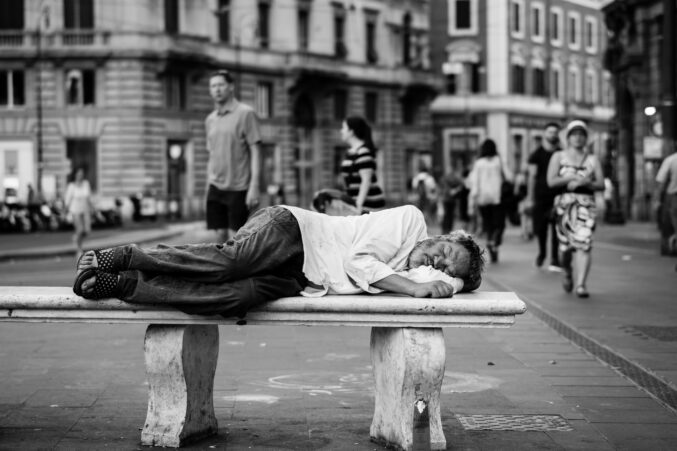
Assisted suicide should be made available to the poor, the homeless and the disabled, two ethicists from the University of Toronto have argued, and a large number of Canadians agree with them. Once again, we see how quickly assisted suicide and euthanasia can become normalised in a country and be seen as an acceptable way out of a difficult life.
The philosophers, whose article appears in an academic journal, maintain that those who live in ‘unjust social circumstances’ should not be prevented from accessing what is euphemistically termed ‘Medical Aid in Dying’ (MAiD).
Poverty, disability, or homelessness can cause despair. There already have been cases in Canada of people asking for MAiD because they could not afford a house compatible with their medical condition. Experts are concerned by the growing number of prisoners asking for assisted suicide.
One argument against allowing such people access to assisted suicide is that their decision is not really autonomous because of the pressure created by their situations. Nonetheless, the two ethicists reject the idea that “the autonomy of people choosing death in the context of injustice is necessarily reduced”. They believe that decisions taken in desperate and oppressive circumstances have to be respected anyway.
The central requirement for access to euthanasia in the Canadian legislation is “having enduring and intolerable physical or psychological suffering”. It is irrelevant whether suffering is determined by social circumstances rather than medical reasons, the philosophers maintain in their article.
They acknowledge that “it is not feasible to expect medical professionals to assess the extent to which the person in their care has had their options restricted because of oppression.” But they don’t find this a good reason to reject the call for expanding the grounds to access MAiD.
Social conditions could improve but until this happens, they say, it is better for the poor and the disabled to be able to choose to die. They call their approach “harm reduction”.
“In the case of the availability of MAiD in Canada to people who not only might but have explicitly said they would choose differently if they had access to the options they preferred, we argue that the least harmful way forward is to allow MAiD to be available.”
Not allowing poor people to request assisted suicide would cause them more harm, is the bizarre conclusion of these highly educated ethicists. Refusing options amounts to perpetuating suffering.
Assisted suicide and euthanasia were initially introduced in Canada in 2016 on medical grounds for incurable illnesses when death was foreseeable, but soon the grounds were expanded by court decisions or updates in the legislation.
Pro-life activists’ predictions of a slippery slope are becoming a stark reality, unfolding at an unexpectedly accelerated pace. Safeguards are constantly eliminated or relaxed.
A recent survey showed that large numbers of Canadians believe that the grounds for access to MAID should include inability to receive medical treatment (51pc), disability (50pc), mental illness (43pc), homelessness (28pc), and even poverty (27pc). Support for these reasons is higher among young Canadians.
So, we can see that the opinions of the two ethicists are shared by a substantial portion of the Canadian population.
If death is the solution to suffering, there is no reason why it should not be offered to everyone. And if suffering is caused by social injustice and lack of alternatives, these philosophers will tell us that the right to kill oneself should extend to everyone, including the poor and the disabled. Lack of hope does not undermine autonomy, they say.
This is where the assisted death legislation is leading Canada and it should serve as a cautionary example for Ireland and for all other countries considering similar laws.
Photo by John Moeses Bauan on Unsplash
Nessun commento:
Posta un commento